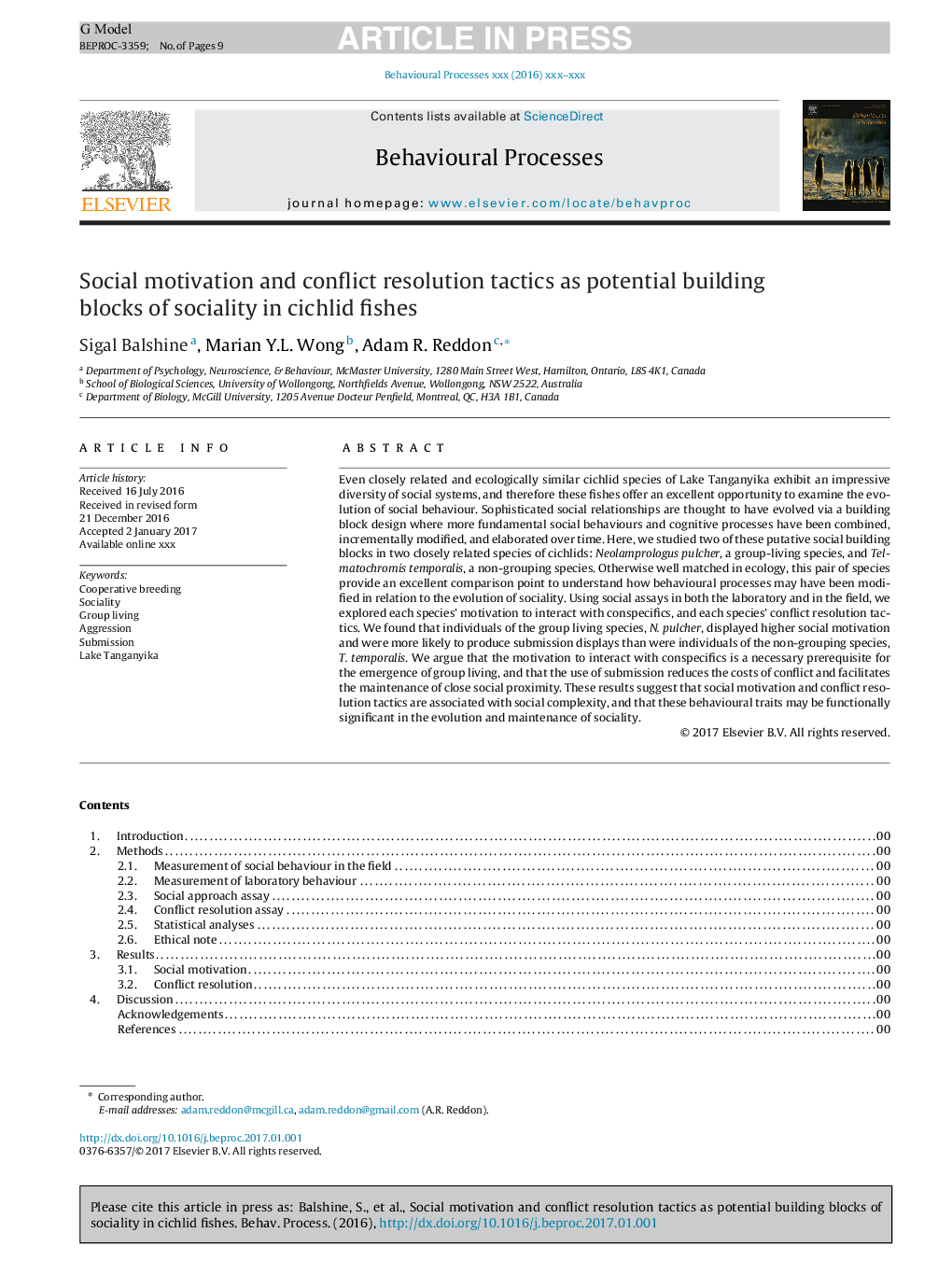ترجمه فارسی عنوان مقاله
انگیزه های اجتماعی و تاکتیک های حل تعارض به عنوان بلوک های بالقوه ساخت اجتماعی از ماهی های سیچلیدی
عنوان انگلیسی
Social motivation and conflict resolution tactics as potential building blocks of sociality in cichlid fishes
| کد مقاله | سال انتشار | تعداد صفحات مقاله انگلیسی |
|---|---|---|
| 103295 | 2017 | 9 صفحه PDF |
منبع

Publisher : Elsevier - Science Direct (الزویر - ساینس دایرکت)
Journal : Behavioural Processes, Volume 141, Part 2, August 2017, Pages 152-160
ترجمه کلمات کلیدی
پرورش تعاونی، اجتماعی بودن، زندگی گروهی پرخاشگری ارسال، دریاچه تنگانیکا،
کلمات کلیدی انگلیسی
Cooperative breeding; Sociality; Group living; Aggression; Submission; Lake Tanganyika;

